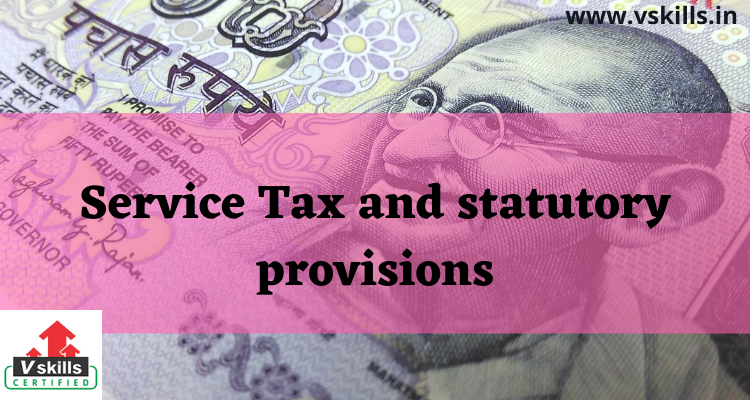Dr. Manmohan Singh, the then Union Finance Minister, in his Budget speech for the year 1994-95 introduced the new concept of Service Tax and stated that,” There is no sound reason for exempting services from taxation, therefore, I propose to make a modest effort in this direction by imposing a tax on services of telephones, non-life insurance and stock brokers.” It Tax has been introduced in order to explore new avenues for taxation and to bring more people into the tax net. It generated revenue of Rs 2612 crores in 2000-2001. In 2001 -2002 it is estimated at 3600 crores.
Bringing services undertaxation is not simple as the services are intangible and are provided by large groups of organized as well as unorganized service providers including retailers who are scattered across the country. Further, there are several services, which are of intermediate nature. The low level of education of service providers also poses difficulties to both-tax administration and assessees. The Service Tax assessee is the person/firm who provides the service. Hence, it must be paid by the person/firm providing the service.
Selective Vs. Comprehensive Coverage
Each country has a taxation system on services adopting either a comprehensive approach or a selective approach. In comprehensive approach all services are made taxable and a list is given in case some services are to be exempted. In selective approach, selected services are subject to service tax. While mostly the developed countries tax all the services with very few and limited exemption, most of the developing countries have adopted for taxation of selected services only. India has adopted a selective approach to taxation of services.
Constitutional Authority
The government derives its power to levy taxes from constitution of India. As per article 256, no tax shall be levied or collected except by authority of law. The constitution in its schedule VII has mentioned the matters on which the Central and the State Government can make laws.
Such matters are divided as follows:
List I: Union list containing matters in respect of which only Central Government can make law.
List II: State list containing matters in respect of which only State Government can make law.
List III : Concurrent list containing matters in respect of which both Central and State Government have the power of legislation.
Entry No. 97 – Any other matter not included in List II, list III and any tax not mentioned in list II or list III. (These are called ‘Residual Powers’.)
Sources of Service Tax Law
There is no independent statute on tax as yet. However, the sources of tax law are:-
(i) Finance Act, 1994: The provision relating to service tax is given in chapter V of Finance Act, 1994. So far there is no service tax.
(ii) Rules on service tax: Central Government has been given the power to make rules according to section 94 of the Finance Act, 1994 and section 96-I of the Finance Act, 2003. These rules are as follows:
Tax Rules, 1994
– Dispute Resolution Scheme Rules, 2008
– Service Tax (Provisional Attachment of Property) Rules, 2008 – The Service Tax (Publication of Names) Rules, 2008
– Export of Service Rules, 2005
– Taxation of Services (Provided from Outside India and Received in India) Rules, 2006
– Service Tax (Registration of Special Category of Persons) Rules, 2005
– Service Tax (Advance Rulings) Rules, 2003
– Service Tax (Determination of Value) Rules, 2006
– Works Contract (Composition Scheme for Payment of Service Tax) Rules, 2007
(iii) Notifications: Section 93, 94 of Finance Act, 1994 and section 96-I of Finance of Act, 2003 empowers the Central Government to issue a notification to exempt any services.
(iv) Circulars or Office Letters (Instructions) on service tax: The circular is issued by the Central Board of Excise and Custom that explains the scope of taxable services and the scheme of service tax administration. The circular brings out the real intention of the legislature.
Trade notices: The trade notice is issued by the commissioners for the effective administration of tax law. The notices are circulated among the field officers and Trade Association.
Section 64 : (Extent, Commencement and Application Chapter V of Finance Act, 1994)
Service tax is first introduced in India by insertion of Chapter V of the Finance Act, 1994 and is hereinafter referred to as “The Act”. The Act came into force from 1.7.1994, by introducing three services to start with. Thereafter, year after year the said Chapter of the Finance Act, 1994 is being amended to introduce new services under the taxable category. Today, it covers 72 kinds of services.
The law encompasses Sections 64 to 96(l) of the Act. It has no separate code or statute.
By section 64(1), the Act extends to the whole of India except the state of Jammu and Kashmir, and by section 64(3), the levy applies to “taxable services provided”. Hence on a reading of section 64, the suits of taxation falls on taxable services provided in India. Services provided outside India or in the State of Jammu and Kashmir are not liable for service tax. In this context, the expression “India” includes the territorial waters of India. Indian territorial waters extend up to twelve nautical miles from the Indian landmass. The law is extended to designated areas in Continental Shelf and Exclusive Economic Zone of India w.e.f. 01/03/2002 vide notification no. 1/2002- Service Tax dated 1st March, 2002. Hence w.e.f. 01/03/2002 services provided beyond the territorial waters of India but in the designated areas within 200 nautical miles from the baseline would also be liable for service tax. Prior to 1st March, 2002, services provided beyond the territorial waters of India (i.e. beyond 12 nautical miles from Indian land mass) were not liable to Service Tax (Circular no. 36/4/2001 dated 8th October, 2001).



